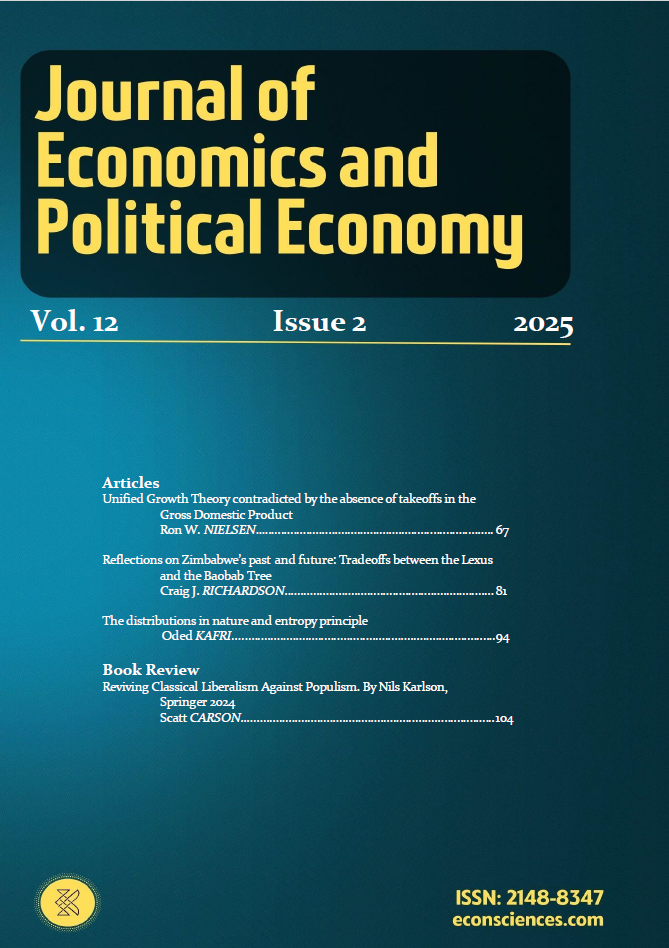Abstract
This paper examines the ongoing economic challenges in Zimbabwe, particularly in the context of the government's post-2018 attempts to encourage foreign direct investment and achieve economic recovery. Despite an initial seemingly welcoming posture toward international business, persistent issues like continued land expropriations, chronic deficit spending, and severe liquidity shortages present formidable obstacles. The paper argues that the central impediment to sustainable growth is the persistent damage to property rights resulting from the post-2000 land reforms, which led to a catastrophic decline in agricultural output and necessitate food aid. Drawing on the metaphor of "The Lexus and the Baobab Tree"—representing globalized, efficient economic systems versus traditional, centralized culture—the analysis posits that Zimbabwe's current model resembles a "Baobab Tree economy," characterized by the export of crude, unprocessed commodities. This lack of economic complexity subjects the nation, especially its poorest citizens, to extreme volatility and risk from global commodity price swings, acting as a profound form of uncertainty. The paper critiques the move toward 99-year land leases as a flawed compromise, challenging the arguments of proponents who suggest these leases offer advantages over freehold titles in terms of "democratic accountability," "flexible land markets," and access to credit. Through comparison with Rwanda's impressive economic transformation—driven by substantial improvements in property rights and the business environment—the paper demonstrates that clear, secure property titles are fundamental to fostering a diversified, complex economy. Ultimately, the paper contends that freehold property titles are essential to unleash human creativity, diversify economic output, and provide a greater degree of economic stability and higher living standards for Zimbabweans, creating a necessary "insurance policy" against global shocks.
Keywords. Zimbabwe; Property Rights; Economic Complexity; Land Reform; Foreign Direct Investment (FDI).
JEL. O13; K11; P26; F21; O55.
References
Friedman, T. L. (1999). The Lexus and the Olive Tree: Understanding Globalization. New York, NY: Farrar, Straus and Giroux.
Mdzungairi, M. (2018, March 12). Zimbabwe’s reform promises yet to yield results. The Herald. Retrieved from https://www.herald.co.zw/
Mining Review Africa. (2018, July 25). Zimbabwe’s mining industry cautiously optimistic. Mining Review Africa. Retrieved from https://www.miningreview.com/
Mnangagwa, E. D. (2018, January 15). Zimbabwe is open for business. The Herald. Retrieved from https://www.herald.co.zw/
Richardson, C. (2018, February 22). Zimbabwe’s new dawn is already faltering. The Wall Street Journal. Retrieved from https://www.wsj.com/
Robertson, J. (2018). The prospects for foreign direct investment: Does Zimbabwe have what investors are looking for? Harare, Zimbabwe: Robertson Economics.
World Bank. (2018). Zimbabwe economic update: The state in the economy. Washington, DC: The World Bank Group.

This work is licensed under a Creative Commons Attribution-NonCommercial 4.0 International License.
